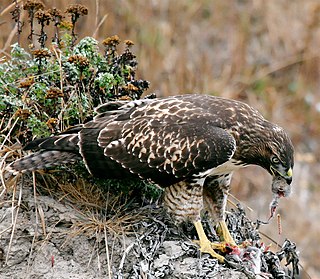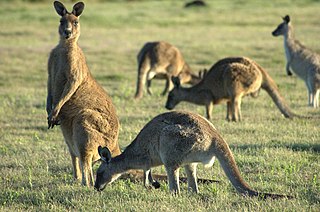
Speciesism is a term used in philosophy regarding the treatment of individuals of different species. The term has several different definitions within the relevant literature. A common element of most definitions is that speciesism involves treating members of one species as morally more important than members of other species in the context of their similar interests. Some sources specifically define speciesism as discrimination or unjustified treatment based on an individual's species membership, while other sources define it as differential treatment without regard to whether the treatment is justified or not. Richard Ryder, who coined the term, defined it as "a prejudice or attitude of bias in favour of the interests of members of one's own species and against those of members of other species." Speciesism results in the belief that humans have the right to use non-human animals, which scholars say is so pervasive in the modern society. Studies increasingly suggest that people who support animal exploitation also tend to endorse racist, sexist, and other prejudicial views, which furthers the beliefs in human supremacy and group dominance to justify systems of inequality and oppression.

Wildlife refers to undomesticated animal species, but has come to include all organisms that grow or live wild in an area without being introduced by humans. Wildlife was also synonymous to game: those birds and mammals that were hunted for sport. Wildlife can be found in all ecosystems. Deserts, plains, grasslands, woodlands, forests, and other areas, including the most developed urban areas, all have distinct forms of wildlife. While the term in popular culture usually refers to animals that are untouched by human factors, most scientists agree that much wildlife is affected by human activities. Some wildlife threaten human safety, health, property, and quality of life. However, many wild animals, even the dangerous ones, have value to human beings. This value might be economic, educational, or emotional in nature.
The Animal Welfare Institute (AWI) is an American non-profit charitable organization founded by Christine Stevens in 1951 with the goal of reducing suffering inflicted on animals by humans. It is one of the oldest animal welfare organizations in the US. Its legislative division, the Society for Animal Protective Legislation (SAPL), pushes for the passage of laws that reflect this purpose.
Animal ethics is a branch of ethics which examines human-animal relationships, the moral consideration of animals and how nonhuman animals ought to be treated. The subject matter includes animal rights, animal welfare, animal law, speciesism, animal cognition, wildlife conservation, wild animal suffering, the moral status of nonhuman animals, the concept of nonhuman personhood, human exceptionalism, the history of animal use, and theories of justice. Several different theoretical approaches have been proposed to examine this field, in accordance with the different theories currently defended in moral and political philosophy. There is no theory which is completely accepted due to the differing understandings of what is meant by the term ethics; however, there are theories that are more widely accepted by society such as animal rights and utilitarianism.
Faunalytics is a nonprofit organization that provides animal advocates with access to the research and analysis of various animal issues. Its research areas include factory farming, veganism and vegetarianism, the overpopulation in companion animals, animal testing, hunting, animal trapping, wild animal suffering, and the use of animals for entertainment purposes. Faunalytics was founded in 2000 by Che Green, and operated under the name Humane Research Council until 2015. In a book about animal activists in the US and France, Elizabeth Cherry cites the use of Faunalytics studies as part of activists' move towards practical research.
Effective altruism (EA) is a philosophical and social movement that advocates for rationally altruistic acts "to figure out how to benefit others as much as possible, and taking action on that basis". Effective altruists often choose careers based on the amount of good that the career achieves, and complementarily pledge to donate to charities to minimize social crises. The movement developed during the 2000s, and the name effective altruism was coined in 2011. Prominent philosophers influential to the movement include Peter Singer, Toby Ord, and William MacAskill. Several books and many articles about the movement have since been published, and the Effective Altruism Global conference has been held since 2013. As of 2022, several billion dollars have been committed to EA causes.

Wild animal suffering is the suffering experienced by nonhuman animals living outside of direct human control, due to harms such as disease, injury, parasitism, starvation and malnutrition, dehydration, weather conditions, natural disasters, and killings by other animals, as well as psychological stress. Some estimates indicate that these individual animals make up the vast majority of animals in existence. An extensive amount of natural suffering has been described as an unavoidable consequence of Darwinian evolution and the pervasiveness of reproductive strategies which favor producing large numbers of offspring, with a low amount of parental care and of which only a small number survive to adulthood, the rest dying in painful ways, has led some to argue that suffering dominates happiness in nature.

Welfare biology is a proposed cross-disciplinary field of research to study the positive and negative well-being of sentient individuals in relation to their environment. Yew-Kwang Ng first advanced the field in 1995. Since then, its establishment has been advocated for by a number of writers, including philosophers, who have argued for the importance of creating the research field, particularly in relation to wild animal suffering. Some researchers have put forward examples of existing research that welfare biology could draw upon and suggested specific applications for the research's findings.
Animal Charity Evaluators (ACE), formerly known as Effective Animal Activism (EAA), is a US-based charity evaluator and effective altruism-focused nonprofit founded in 2012. ACE evaluates animal charities and compares the effectiveness of their different campaigns and strategies. The organization makes charity recommendations to donors once a year. Its stated purpose is finding and promoting the most effective ways to help animals.

Oscar Horta is a Spanish animal activist and moral philosopher who is currently a professor in the Department of Philosophy and Anthropology at the University of Santiago de Compostela (USC) and one of the co-founders of the organization Animal Ethics. He is known for his work in animal ethics, especially around the problem of wild animal suffering. He has also worked on the concept of speciesism and on the clarification of the arguments for the moral consideration of nonhuman animals. In 2022, Horta published his first book in English, Making a Stand for Animals.

Compassionate conservation is a discipline which aims to combine the fields of conservation and animal welfare. Historically, these two fields have been considered separate and sometimes contradictory to each other. The foundational principles of compassionate conservation are: "Do No Harm; Individuals Matter; Inclusivity; Peaceful Coexistence".
The eradication or abolition of suffering is the concept of using biotechnology to create a permanent absence of pain and suffering in all sentient beings.

The predation problem or predation argument refers to the consideration of the harms experienced by animals due to predation as a moral problem, that humans may or may not have an obligation to work towards preventing. Discourse on this topic has, by and large, been held within the disciplines of animal and environmental ethics. The issue has particularly been discussed in relation to animal rights and wild animal suffering. Some critics have considered an obligation to prevent predation as untenable or absurd and have used the position as a reductio ad absurdum to reject the concept of animal rights altogether. Others have criticized any obligation implied by the animal rights position as environmentally harmful.

The relationship between animal ethics and environmental ethics concerns the differing ethical consideration of individual nonhuman animals—particularly those living in spaces outside of direct human control—and conceptual entities such as species, populations and ecosystems. The intersection of these two fields is a prominent component of vegan discourse.
Thomas Lepeltier is a French independent scholar, essayist and science writer specializing in the history and philosophy of science and applied ethics, known in particular for his contributions to the field of animal law. He is the author of several philosophical works on animal ethics such as L'imposture intellectuelle des carnivores and of science history books including Darwin hérétique and Univers parallèles. Known initially as a science historian, he now mainly advocates in defense of animals in the French media.

The ecology of fear is a conceptual framework describing the psychological impact that predator-induced stress experienced by animals has on populations and ecosystems. Within ecology, the impact of predators has been traditionally viewed as limited to the animals that they directly kill, while the ecology of fear advances evidence that predators may have a far more substantial impact on the individuals that they predate, reducing fecundity, survival and population sizes. To avoid being killed, animals that are preyed upon will employ anti-predator defenses which aid survival but may carry substantial costs.

Suffering risks, known as s-risks for short, are future events with the potential capacity to produce an astronomical amount of suffering. These events may generate more suffering than has ever existed on Earth, in the entirety of its existence. Sources of possible s-risks include embodied artificial intelligence and superintelligence, as well as space colonization, which could potentially lead to "constant and catastrophic wars" and an immense increase in wild animal suffering by introducing wild animals, who "generally lead short, miserable lives full of sometimes the most brutal suffering", to other planets, either intentionally, or inadvertently.
Catia Faria is a Portuguese moral philosopher and activist for animal rights and feminism. She is assistant professor in Applied Ethics at the Complutense University of Madrid, and is a board member of the UPF-Centre for Animal Ethics. Faria specialises in normative and applied ethics, especially focusing on how they apply to the moral consideration of non-human animals. In 2022, she is expected to publish her first book Animal Ethics in the Wild: Wild Animal Suffering and Intervention in Nature.
"The Meat Eaters" is a 2010 essay by the American philosopher Jeff McMahan, published as an op-ed in The New York Times. In the essay, McMahan asserts that humans have a moral obligation to stop eating meat and, in a conclusion considered to be controversial, that humans also have a duty to prevent predation by individuals who belong to carnivorous species, if we can do so without inflicting greater harm overall.

Wild Animal Initiative (WAI) is a nonprofit organization focused on supporting and producing academic research on improving wild animal welfare. It is one of three "Top Charities" recommended by Animal Charity Evaluators.










